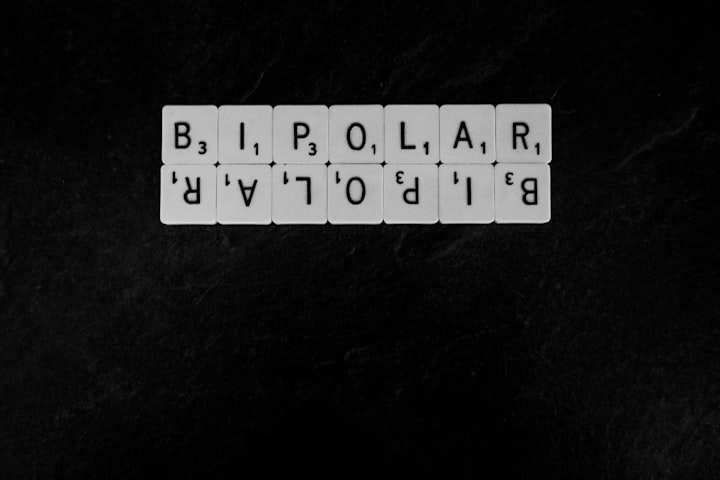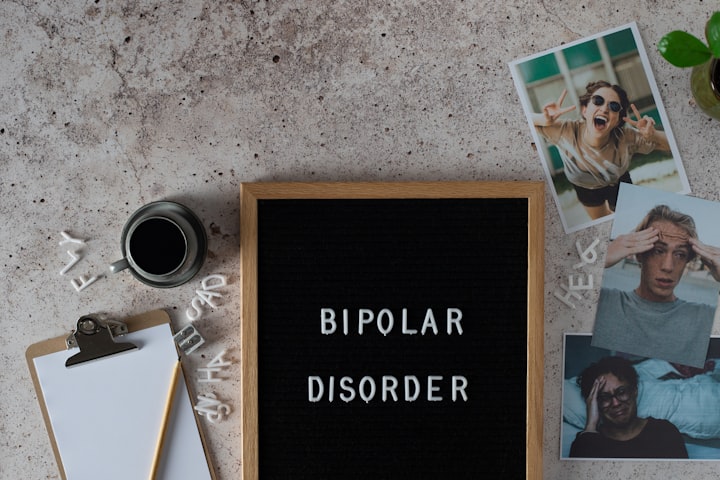The Impact of Bipolar Disorder on Relationships
The Impact of Bipolar Disorder on Relationships

Bipolar disorder is a mental health condition that affects a person's mood, energy, activity level, and ability to function in daily life. The disorder can cause periods of intense excitement and manic behavior followed by periods of depression and hopelessness. These mood swings can have a significant impact on the individual's personal and professional relationships, leading to conflicts, misunderstandings, and challenges. In this article, we will discuss the impact of bipolar disorder on relationships and how therapy can help manage the symptoms of the disorder.
Bipolar disorder affects approximately 2.8% of adults in the United States, and it can be challenging to diagnose and treat. The disorder typically begins in adolescence or early adulthood and can last for a lifetime. It is characterized by two distinct phases: manic episodes and depressive episodes. During manic episodes, individuals may experience heightened energy, euphoria, grandiosity, racing thoughts, and increased risk-taking behavior. On the other hand, depressive episodes can cause feelings of sadness, hopelessness, and worthlessness, along with a loss of interest in activities that were once enjoyable.
The mood swings associated with bipolar disorder can take a toll on personal relationships. During manic episodes, individuals may become impulsive and make decisions that negatively affect their relationships, such as spending money recklessly, engaging in risky sexual behavior, or making promises they can't keep. These behaviors can lead to conflicts and misunderstandings with family, friends, and romantic partners.
During depressive episodes, individuals with bipolar disorder may withdraw from social activities and become less communicative with their loved ones. They may also experience feelings of guilt and self-doubt, which can cause strain on their relationships. The fluctuations in mood can also cause instability in the relationship, making it difficult for the other person to anticipate the individual's behavior or know how to support them.
The impact of bipolar disorder on relationships can be particularly challenging for romantic partners. The unpredictability of mood swings and the associated behaviors can cause confusion, frustration, and emotional distress for both partners. The partner of an individual with bipolar disorder may also experience feelings of helplessness, as they struggle to support their loved one while also maintaining their own emotional well-being.
Therapy can be an effective tool for managing the symptoms of bipolar disorder and improving relationships. In Delhi, there are many therapists who specialize in treating bipolar disorder and helping individuals and their partners navigate the challenges associated with the disorder.
Therapy for bipolar disorder typically involves a combination of medication and talk therapy. Medications such as mood stabilizers, antipsychotics, and antidepressants can help manage the symptoms of bipolar disorder and prevent episodes of mania or depression. Talk therapy, such as cognitive-behavioral therapy (CBT) and dialectical behavior therapy (DBT), can help individuals with bipolar disorder identify triggers for mood swings, develop coping skills, and improve communication with their partners.
In addition to therapy, there are several strategies that individuals with bipolar disorder can use to improve their relationships. These include:
Education: Learning about bipolar disorder and how it affects relationships can help individuals and their partners develop a better understanding of the disorder and its symptoms. This knowledge can help both parties develop empathy and compassion for each other.
Communication: Effective communication is essential for managing relationships affected by bipolar disorder. Individuals with the disorder should communicate their needs and feelings to their partners clearly, and partners should be willing to listen and provide support.
Self-care: Taking care of oneself is crucial for managing bipolar disorder and maintaining healthy relationships. Individuals with the disorder should prioritize self-care activities such as exercise, sleep, healthy eating, and stress reduction.
Support: Building a support system can help individuals with bipolar disorder and their partners manage the challenges of the disorder. This support system may include therapists, support groups, and trusted friends or family members who understand the disorder and can provide emotional support.
Setting boundaries: It is important for individuals with bipolar disorder and their partners to set boundaries and establish clear expectations for the relationship. This can help prevent conflicts and misunderstandings and improve overall relationship satisfaction.
Therapists in Delhi can provide support and guidance for individuals with bipolar disorder and their partners as they navigate the challenges of the disorder. These therapists can help individuals develop coping strategies, improve communication, and manage their symptoms. They can also provide education about the disorder and its impact on relationships, helping both individuals and their partners develop a better understanding of the disorder and how to manage it effectively.





Comments
There are no comments for this story
Be the first to respond and start the conversation.